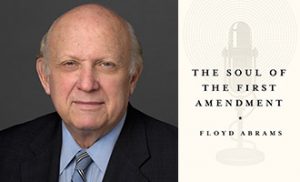The Sixth Circuit Court of Appeals handed down a wise decision today in striking down Ohio’s false statement law statute in Susan B. Anthony List, et al. v. Driehaus, et al. “Ohio’s laws do not pass constitutional muster because they are not narrowly tailored in their (1) timing, (2) lack of a screening process for frivolous complaints, (3) application to non-material statements, (4) application to commercial intermediaries, and (5) over-inclusiveness and under-inclusiveness,” wrote the court.
The Center for Competitive Politics previously filed an amicus brief before the U.S. Supreme Court urging that SBA List’s challenge of Ohio’s false statement law be allowed to proceed. CCP Chair Bradley A. Smith also filed a separate brief on behalf of Ohio Attorney General Michael DeWine in support of neither party, explaining how the structure of Ohio’s false statement law statute rendered it prone to abuse by politically-motivated complaints.
After the Supreme Court ruled 9-0 that the challenge could move forward, the Sixth Circuit rightly determined that Ohio’s false statement is unconstitutional. The court concluded: “Ohio’s political false-statements laws are content-based restrictions targeting core political speech that are not narrowly tailored to serve the state’s admittedly compelling interest in conducting fair elections. Accordingly, we affirm the district court’s judgment finding the laws unconstitutional.”
Voters, not the government, should be the ones to determine whether political statements are true, false, or somewhere in between. Unfortunately, Ohio is not the only state to implement false statement laws that insert government into the absurd business of acting as the “truth police.” Hopefully, the Sixth Circuit’s ruling will knock some sense into other states with similar statutes and serve as a reminder that restrictions on speech, no matter how well-intended, lead to disastrous results.














